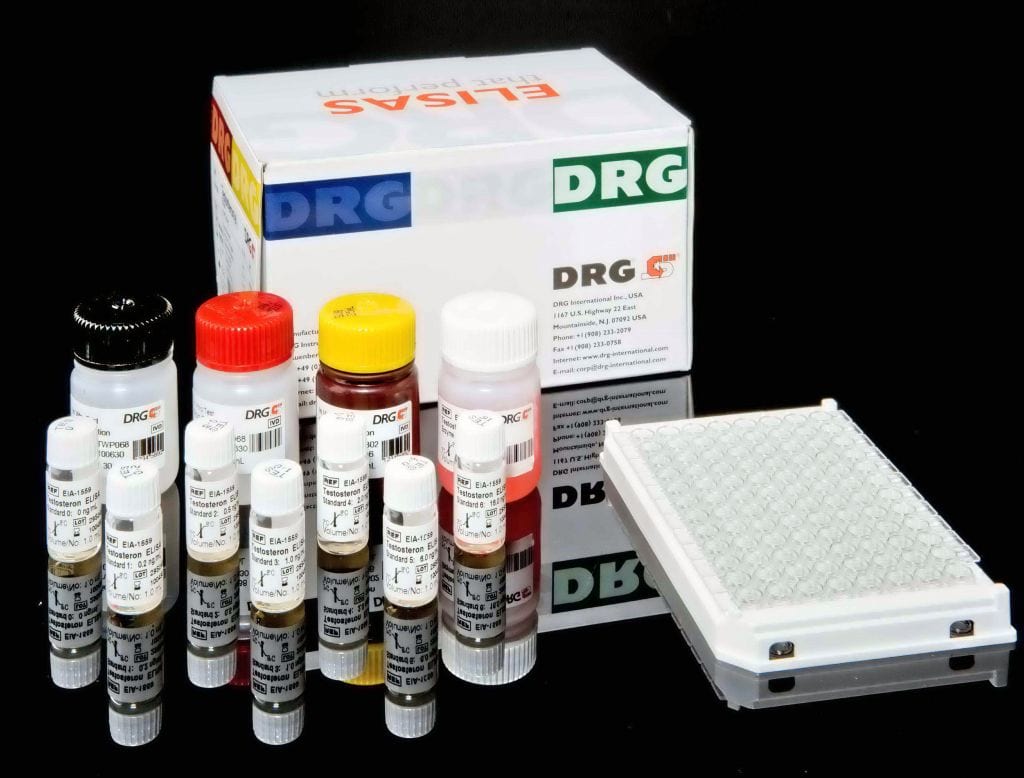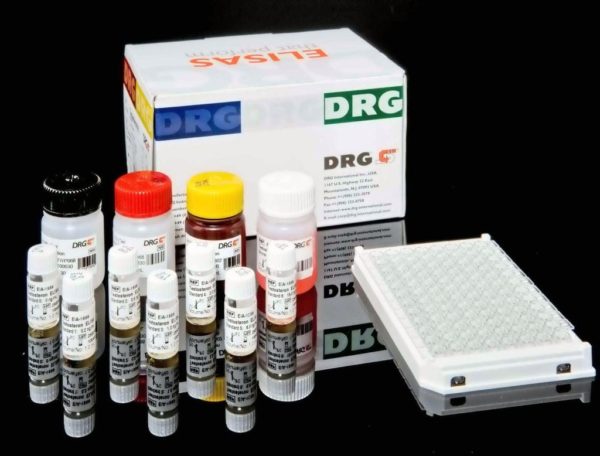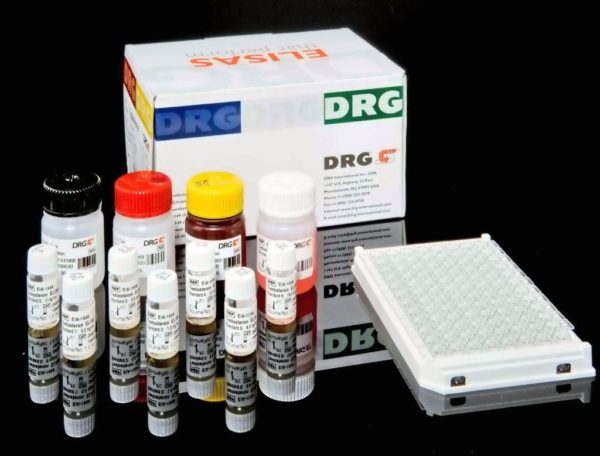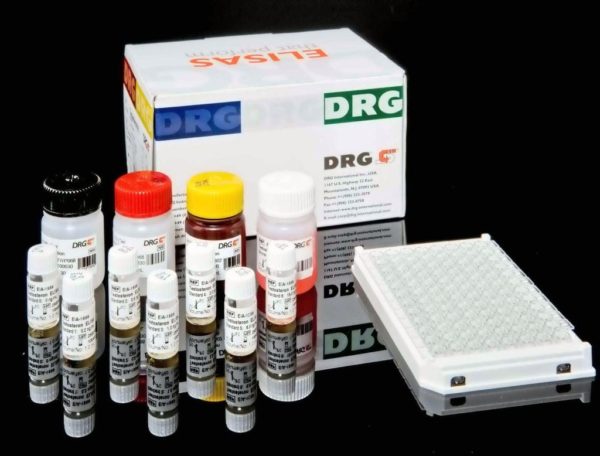Description
An enzyme immunoassay for the quantitative determination of Intact-PTH (Parathyroid Hormone) in serum.
PTH (Parathyroid hormone, Parathormone, Parathyrin) is biosynthesized in the parathyroid gland as a pre-proparathyroid hormone, a larger molecular precursor consisting of 115 amino acids. Following sequential intracellular cleavage of a 25-amino acid sequence, preproparathyroid hormone is converted to an intermediate, a 90-amino acid polypetide, proparathyroid hormone. With additional proteolytic modification, proparathyroid hormone is then converted to parathyroid hormone, an 84 amino acid polypeptide. In healthy individuals, regulation of parathyroid hormone secretion normally occurs via a negative feedback action of serum calcium on the parathyroid glands. Intact PTH is biologically active and clears very rapidly from the circulation with a half-life of less than four minutes1. PTH undergoes proteolysis in the parathyroid glands, but mostly peripherally,
particularly in the liver but also in the kidneys and bone, to give N-terminal fragments and longer lived C_terminal and midregion fragments. In subjects with renal insufficiency, C_terminal and midregion PTH assays typically give elevated PTH results, as reflected by impaired renal clearance2.
The DRG Intact PTH Immunoassay is a two-site ELISA [Enzyme-Linked ImmunoSorbent Assay] for the measurement of the biologically intact 84 amino acid chain of PTH. Two different goat polyclonal antibodies to human PTH have been purified by affinity chromatography to be specific for well-defined regions on the PTH molecule. One antibody is prepared to bind only the mid-region and C-terminal PTH 39-84 and this antibody is biotinylated. The other antibody is prepared to bind only the N-terminal PTH 1-34 and this antibody is labeled with horseradish peroxidase [HRP] for detection. Although mid-region and C-terminal fragments are bound by the biotinylated anti-PTH (39-84), only the intact PTH 1_84 forms the sandwich complex necessary for detection. The capacity of the biotinylated antibody and the streptavidin coated microwell both have been adjusted to exhibit negligible interference by inactive fragments, even at very elevated levels. In this assay, calibrators, controls, or patient samples are simultaneously incubated with the enzyme labeled antibody and a biotin coupled antibody in a streptavidin-coated microplate well. At the end of the assay incubation, the microwell is washed to remove unbound
components and the enzyme bound to the solid phase is incubated with the substrate, tetramethylbenzidine (TMB).An acidic stopping solution is then added to stop the reaction and
converts the color to yellow. The intensity of the yellow color is directly proportional to the concentration ofintact PTH in the sample. A dose response curve of absorbance unit vs.
concentration is generated using results obtained from the calibrators. Concentrations of intact PTH present in the controls and patient samples are determined directly from this curve.




